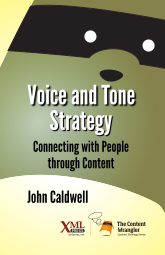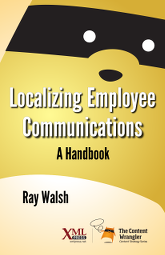Anne Gentle’s new book, Conversation and Community: The Social Web for Documentation, is now available, so we took the opportunity to interview Anne about the impact of Social Media on technical communicators.
What is Social Media and the social web? How do blogs and wikis fit into this area of the web?
I think the general trend is to lump together social media, social networking, and Web 2.0 into a general category called “the social web.” Wikis and blogs belong in this category due to their user-centric nature. Wikis enable users to edit pages and leave comments on content. Blogs encourage interaction with the audience and rapid publishing. There are many more social media tools than just blogs and wikis of course, probably exceeding 400 tools if you start listing the individual sites.
I find that the best way to define the entire category is as a class of tools that encourage people to get involved with content, socialize content by sharing it, and interact with each other. It’s interesting, though, that the direction I see social media potentially heading is that groups have an overall web content strategy, and the social creating, publishing, and distributing methods are just a facet in the overall web content strategy. In my book, Conversation and Community, I talk about general categories of social tools, such as syndication, shared content, communities, and so on. All these categories help to define the overall “social web.”
How does the social web change the way technical communicators work?
Social media lowers the barrier to entry for publishing and distributing content and offers a scale of both that is unprecedented. Writers can communicate and collaborate with their audience in completely new ways. All these factors have caused the newspaper and television media to change their revenue models and the way they distribute the news and information. Even with parallel industries changing their models and methods, in some ways, technical communicators have not yet had to change the way we work. This slow uptake could be due to the gradual introduction of these shifted notions of reading, gathering information, troubleshooting and learning for work purposes. Social media is much more popular for personal learning and information gathering.
Some companies haven’t had customers that require these new methods for delivery. But the time for that shift is here – technical communicators are using these tools internally for collaboration more than externally for documentation delivery. More and more I receive emails from technical communicators who have a new direction from their boss, asking for answers to questions with all online publication rather than classic PDF or printed documentation. Technical communicators are also being tasked with creating a new customer support portal and integrating technical documentation into that portal, which also has a user community requirement.
What is the impact of social documentation on the field of technical communication?
Using social web tools changes the number of people that can contribute to content, as well as the number of people that can find the content. I’m finding that people are applying social web technologies to classic documentation solutions such as offering support, troubleshooting, training, educating, and encouraging uptake of a product.
Why did you write this book?
I honestly felt compelled to tell my stories because I was in such a unique situation, using these social media tools for technical documentation while the tools were just emerging. I started blogging as a technical writer on a corporate site in 2005, before the book Naked Conversations was published. I started writing end-user documentation in a wiki as an apprenticeship when I wanted to learn more about wikis as a delivery mechanism for documentation. I talked with people all the time who were experimenting with social media for many different reasons, and I constantly asked myself, how does this affect my chosen career as a technical communicator? I outlined and wrote this book as a substitute for my normal blog entries, pulling together the bigger picture piece by piece. The book emerged as a manuscript with the help of all the people who reviewed it and gave me the experiences from which I gathered tales as examples.
Who is the audience for your book?
Since XML Press provides content that helps technical communicators be more effective in their work and value proposition, the primary audience for Conversation and Community is technical communicators. Technical communicators are information workers who provide information that enables people to complete tasks or make a decision. I also believe that people with these titles or roles would find the book useful: technical publications managers, technical writers, customer support engineers, customer support managers, programmers, user experience designers, usability engineers, web designers, bloggers, wiki editors, community managers, information architects, Agile development or documentation team members, and open source software programmers.
What is your next book/project going to be?
I was quite naive about the amount of work it takes to finalize a book. So I’m elated to have it finished! My oldest son starts kindergarten this fall and I expect that transition to be a project in itself. 🙂 I want to get back to publishing twice-weekly blog posts and working on the SugarLabs documentation, with a Book Sprint scheduled in there somewhere, somehow. FLOSS Manuals has continued to grow at an excellent rate, and I’d like to work on promoting their growing book catalog and finding more online publishing opportunities for them. The home improvement projects are calling my name too!
I do hope to write another book, but I’m still wondering what the next topic is. Is it our role as a documentation person embedded on an Agile team? Or is it a book about curating content using tools like Google Wave? I’m curious to see where this book takes me, also. There may be a new project on the horizon after “the Internet” reads this book.




